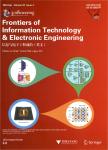Using emotions for the development of human-agent societies
Using emotions for the development of human-agent societies作者机构:Department of Computer Systems and Computation Universitat Politecnica de Valencia Departamento de Inteligencia Artificial Universidad Politecnica de Madrid Centre for Intelligent Information Technologies Universidad Rey Juan Carlos
出 版 物:《Frontiers of Information Technology & Electronic Engineering》 (信息与电子工程前沿(英文版))
年 卷 期:2016年第17卷第4期
页 面:325-337页
核心收录:
学科分类:12[管理学] 1201[管理学-管理科学与工程(可授管理学、工学学位)] 081104[工学-模式识别与智能系统] 08[工学] 080203[工学-机械设计及理论] 0835[工学-软件工程] 0802[工学-机械工程] 0811[工学-控制科学与工程] 0812[工学-计算机科学与技术(可授工学、理学学位)]
基 金:supported by the Ministerio de Economia y Competitividad of the Spanish Government the European Regional Development Fund of the European Union(No.TIN2015-65515-C4-1-R)
主 题:Multi-agent systems Virtual environments Emotional agents
摘 要:Human-agent societies refer to applications where virtual agents and humans coexist and interact transparently into a fully integrated environment. One of the most important aspects in this kind of applications is including emotional states of the agents(humans or not) in the decision-making process. In this sense, this paper presents the applicability of the JaCalIVE(Jason Cartago implemented intelligent virtual environment) framework for developing this kind of society. Specifically, the paper presents an ambient intelligence application where humans are immersed into a system that extracts and analyzes the emotional state of a human group. A social emotional model is employed to try to maximize the welfare of those humans by playing the most appropriate music in every moment.



